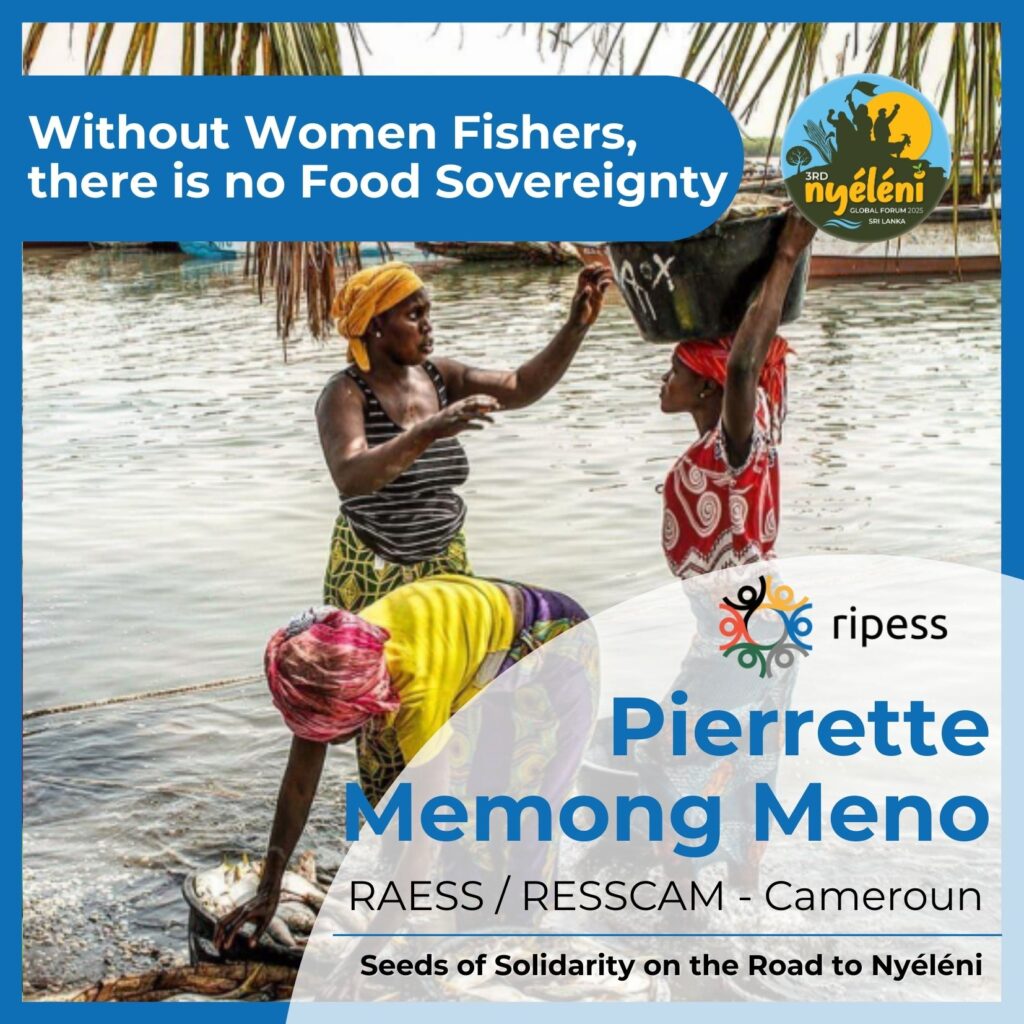
From the commune of Mouanko, in the Littoral region of Cameroon, Elise Pierrette Memong Meno—member of the African Network of Social and Solidarity Economy (RAESS) and the National Network of Social and Solidarity Economy of Cameroon (RESSCAM)—brings with her the experience of women who have turned clam (oyster) fishing into a source of livelihood and a fight for dignity.
Mouanko, located along the Sanaga River, is made up of seven villages where fishing is the main economic activity. Women have specialized in clam harvesting, supplying cooks from Douala—the country’s main economic city—and Nigerian buyers who use the shells in traditional medicine. These women fish for five months a year, respecting the ecosystem’s reproductive cycle, and collect between 30 and 49 wheelbarrows of oysters per week.
Despite their crucial role in the local economy, these workers have lived for years in precarious conditions, without social protection or legal recognition. They sold oyster meat for between €3.50 and €5.30, while men resold the bags of shells for up to €23, creating a chain of inequality. Nigerian buyers, who set market prices, pressured them to break the reproductive cycle and use fine-mesh nets to meet demand, threatening the resource’s sustainability.
The challenge is clear: to pool resources and capacities to produce in harmony with nature, defend fair pricing, occupy decision-making spaces in natural resource management and municipal councils, and above all, claim the human rights of women fishers.
Thanks to support from RESSCAM/RAESS, these women have begun a process of transformation. They have organized into cooperatives, received training, launched political advocacy actions, and started transitioning into the formal sector. Today, they are improving their income, accessing social protection programs, and actively participating in local governance. What was once isolation and precariousness is now becoming organization and collective strength.
Among the ongoing solutions are strengthening the organization of women fishers, seeking fair markets, and defending human rights. The Social and Solidarity Economy (SSE) has become a true instrument of women’s empowerment and food sovereignty.
In her suitcase to Nyéléni, Elise carries the experience of these brave women who, through organization and solidarity, have shown that another economic model is possible.


